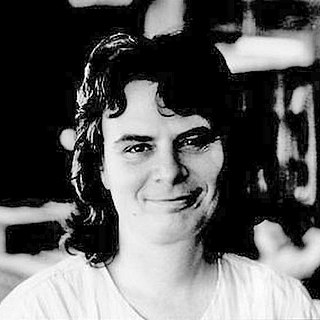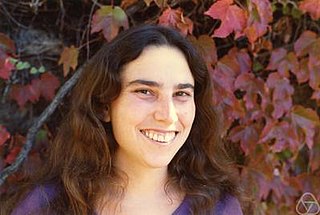
Karen Keskulla Uhlenbeck ForMemRS is an American mathematician and one of the founders of modern geometric analysis. She is a professor emeritus of mathematics at the University of Texas at Austin, where she held the Sid W. Richardson Foundation Regents Chair. She is currently a distinguished visiting professor at the Institute for Advanced Study and a visiting senior research scholar at Princeton University.
Joan Sylvia Lyttle Birman is an American mathematician, specializing in low-dimensional topology. She has made contributions to the study of knots, 3-manifolds, mapping class groups of surfaces, geometric group theory, contact structures and dynamical systems. Birman is research professor emerita at Barnard College, Columbia University, where she has been since 1973.

Chuu-Lian Terng is a Taiwanese-American mathematician. Her research areas are differential geometry and integrable systems, with particular interests in completely integrable Hamiltonian partial differential equations and their relations to differential geometry, the geometry and topology of submanifolds in symmetric spaces, and the geometry of isometric actions.
Alison Beth Miller is an American mathematician who was the first American female gold medalist at the International Mathematical Olympiad. She also holds the distinction of placing in the top 16 of the Putnam Competition four times, the last three of which were recognized by the Elizabeth Lowell Putnam award for outstanding performance by a woman on the contest.
Bryna Rebekah Kra is an American mathematician and Sarah Rebecca Roland Professor at Northwestern University who is on the board of trustees of the American Mathematical Society and was elected the president of the American Mathematical Society in 2021. As a member of the American Academy of Arts and Sciences and the National Academy of Sciences, Kra has made significant contributions to the structure theory of characteristic factors for multiple ergodic averages. Her academic work centered on dynamical systems and ergodic theory, and uses dynamical methods to address problems in number theory and combinatorics.
There is a long history of women in mathematics in the United States. All women mentioned here are American unless otherwise noted.
This is a timeline of women in mathematics.

Cora Susana Sadosky de Goldstein was an Argentine mathematician and Professor of Mathematics at Howard University.

Ruth Michele Charney is an American mathematician known for her work in geometric group theory and Artin groups. Other areas of research include K-theory and algebraic topology. She holds the Theodore and Evelyn G. Berenson Chair in Mathematics at Brandeis University. She was in the first group of mathematicians named Fellows of the American Mathematical Society. She was in the first group of mathematicians named Fellows of the Association for Women in Mathematics. She served as president of the Association for Women in Mathematics during 2013–2015, and served as president of the American Mathematical Society for the 2021–2023 term.
Laura Grace DeMarco is a professor of mathematics at Harvard University, whose research concerns dynamical systems and complex analysis.

Ioana Dumitriu is a Romanian-American mathematician who works as a professor of mathematics at the University of California, San Diego. Her research interests include the theory of random matrices, numerical analysis, scientific computing, and game theory.

Carol Saunders Wood is a retired American mathematician, the Edward Burr Van Vleck Professor of Mathematics, Emerita, at Wesleyan University. Her research concerns mathematical logic and model-theoretic algebra, and in particular the theory of differentially closed fields.

Tatiana Toro is a Colombian-American mathematician at the University of Washington. Her research is "at the interface of geometric measure theory, harmonic analysis and partial differential equations". Toro was appointed director of the Simons Laufer Mathematical Sciences Institute for 2022–2027.

John Vincent Pardon is an American mathematician who works on geometry and topology. He is primarily known for having solved Gromov's problem on distortion of knots, for which he was awarded the 2012 Morgan Prize. He is currently a permanent member of the Simons Center for Geometry and Physics and a full professor of mathematics at Princeton University.

Jennifer Shyamala Sayaka Balakrishnan is an American mathematician known for leading a team that solved the problem of the "cursed curve", a Diophantine equation that was known for being "famously difficult". More generally, Balakrishnan specializes in algorithmic number theory and arithmetic geometry. She is the Clare Boothe Luce Associate Professor at Boston University.
Ruth I. Michler was an American-born mathematician of German descent who lived and worked in the United States. She earned her Ph.D. in Mathematics from the University of California, Berkeley, and she was a tenured associate professor at the University of North Texas. She died at the age of 33 while visiting Northeastern University, after which at least three memorial conferences were held in her honor, and the Ruth I. Michler Memorial Prize was established in her memory.
Melody Tung Chan is an American mathematician and violinist who works as Associate Professor of Mathematics at Brown University. She is a winner of the Alice T. Schafer Prize and of the AWM–Microsoft Research Prize in Algebra and Number Theory. Her research involves combinatorial commutative algebra, graph theory, and tropical geometry.

Bianca L. Viray is an American mathematician and professor at the University of Washington in Seattle. She works in arithmetic geometry, which is a blend of algebraic geometry and algebraic number theory.

Wei Ho is an American mathematician specializing in number theory, algebraic geometry, arithmetic geometry, and representation theory. She is an associate professor of mathematics at the University of Michigan in Ann Arbor, Michigan.
Pallavi Dani is an Indian-American mathematician and an associate professor of mathematics at Louisiana State University (LSU) in Baton Rouge, Louisiana. Her research area is geometric group theory; in particular, she studies quasi-isometry invariants of groups.











